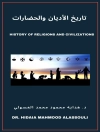In ‘The Life of St. Teresa of Jesus, of the Order of Our Lady of Carmel, ‘ St. Teresa of Avila presents a profound and introspective narrative that intertwines memoir with spiritual treatise. Written in the 16th century, this autobiographical work explores her mystical experiences, struggles with prayer, and her reformative vision for the Carmelite Order amidst the backdrop of the Counter-Reformation. St. Teresa’s literary style is marked by clarity and a deep sense of reverence, inviting readers into the intimate landscape of her soul, revealing both the trials of her faith and the transformative power of divine love. Saint Teresa of Avila, a Spanish mystic and theologian, was not only a prominent religious figure but also a reformer who sought to restore the original spirit of the Carmelite Order. Her own tumultuous experiences with spirituality and her commitment to contemplative life provided her with the insight necessary to articulate the complexities of faith, prayer, and divine union. Her writings are both a product of her extensive theological knowledge and personal encounters with God, reflecting the fervor of the 16th-century Catholic revival. This book is highly recommended for those interested in mysticism, spirituality, and the intersection of personal experience with theological discourse. St. Teresa’s rich insights and eloquent prose make this work an essential read for anyone seeking a deeper understanding of the Christian spiritual journey and the transformative power of grace.
Despre autor
Saint Teresa of Avila, born Teresa de Cepeda y Ahumada, on March 28, 1515, stands as a towering figure in Christian mysticism and Spanish Renaissance literature. A Carmelite nun, theologian, and a contemplative writer, she was a pivotal reformist within the Carmelite Order and is considered one of the foremost authorities on spiritual practice and mystical theology. Her seminal work, ‘The Life of St. Teresa of Jesus, of the Order of Our Lady of Carmel’ is an autobiography that offers an incisive look into her spiritual experiences and complex inner life. Saint Teresa’s narrative blends autobiographical elements with theological and philosophical introspection, establishing her as a rare female voice in a male-dominated context. Her writing is marked by its vivid imagery, its urgent calls for reform, and its candid, conversational tone, which captures her zeal for her faith. She has been esteemed for her contributions to the Spanish language and her literary prowess, characterized by lucidity and evocative metaphors. Canonized as a saint in 1622, she was also declared a Doctor of the Church in 1970 by Pope Paul VI, highlighting her lasting impact on Christian spirituality and religious literature. Her works continue to be pivotal in the study of mysticism and the Spanish Golden Age literary canon.




